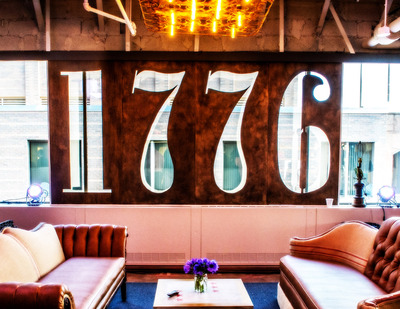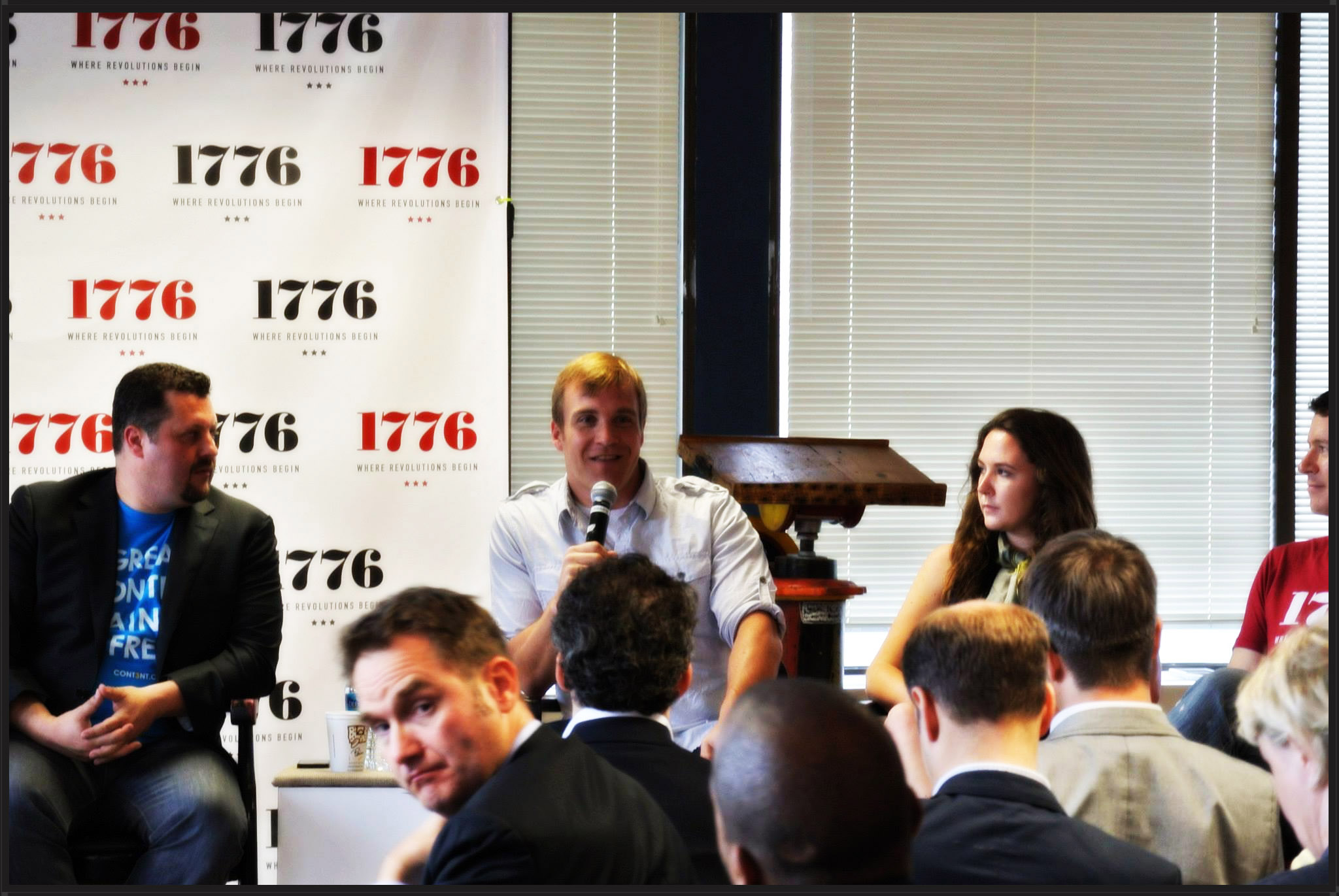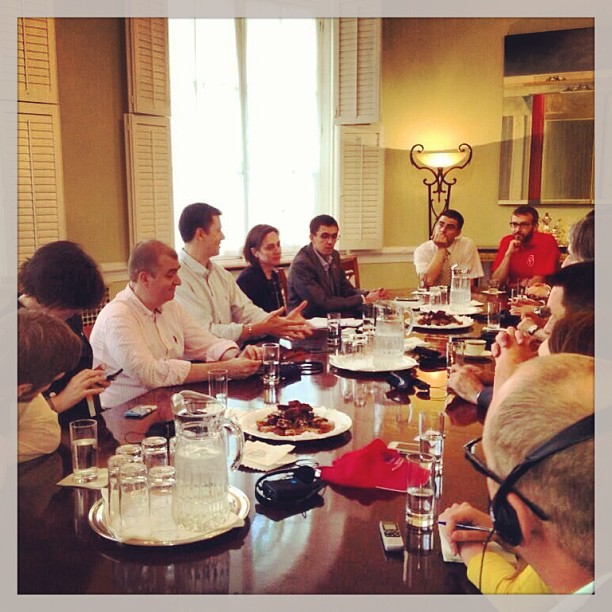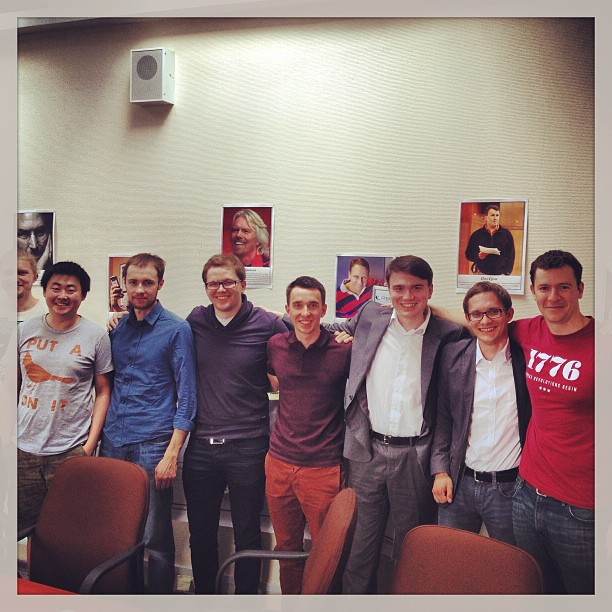
The headlines around the world have been pretty discouraging recently. Europe remains stuck in an economic malaise with neither obvious solutions nor the political will to implement them. Meanwhile, the Middle East struggles through waves of populist dissatisfaction and revolution, while Russia runs further away from Western ideals of governance, with increasing restrictions on civil society and an ever stronger message that the governing elite will not tolerate open protest.
Despite all of this, I'm more optimistic about the future than I've been in a while. The macro trends may appear bleak, but something remarkable is happening on the ground: our startup formula has spread around the world.

Recently, I've had the opportunity to meet some remarkable startup leaders from surprising places. At 1776, the incubator platform that Donna Harris and I cofounded in the heart of Washington, D.C., we've hosted delegations from Egypt and Germany. I've also joined the U.S. Embassy in Moscow on a tour of Russian startups. It's one thing to hear that other countries are replicating our innovation formula; it's something else to see it in action.
In Cairo, Tarek Fahim and his cofounders have created Tamkeen Capital, an accelerator and seed venture capital fund. As Tarek shared with me, "We stood in Tahrir Square to create the opportunity for freedom, but this is the real work. In America, you say that your education and health systems are broken. In Egypt, we still need to build those systems."
Tamkeen's mission is to "enable missionary, passionate, and maniacally focused entrepreneurs to build world-changing ventures." They have a $10 million seed fund and are accelerating companies such as Nabda Care, a social health platform that enables connectivity between patients, care providers, and personal medical records.
In Berlin, Madeleine Gummer von Mohl and her cofounders have established Betahaus, a hub for the Berlin startup ecosystem. Betahaus combines a co-working facility, an events venue, and a maker space for rapid prototyping. Betahaus events are generally held in English, as that's the common language of the global startup community. You can also take classes in development, design, and business provided by General Assembly, an innovative school that started in New York City and has quickly expanded around the globe.
I met Madeleine with a delegation of 50 startups touring Silicon Valley, New York, and Washington, D.C. The delegation was led by Dr. Philipp Rösler, the German Vice Chancellor, who stressed in his remarks at 1776 that Germany recognizes that entrepreneurship and innovation are critical to inject vibrancy in Europe's economy. During the Germans' visit, I moderated a panel of D.C.-based founders and funders. The nominal topic was building startups in America and the growth of the D.C. startup ecosystem, but the discussion quickly turned into a geek out between the American and German founders as they delved into the particulars of German payment networks and how social distribution differs across countries.

While I learned from the Egyptians and Germans, the biggest surprise by far was Russia, perhaps because it seems the most overtly suspicious of America.
In St. Petersburg, I met with Liliana Pertenava, the Chief Marketing Officer for Dnevnik, which means "Journal" in Russian, a social learning network used by 7 million primary and secondary school students across Russia. Dnevnik connects students, parents, teachers, and school administrators together with assignments and performance data. It's a cross between Facebook and Blackboard with a freemium business model, a great user experience, and strong privacy controls. Dnevnik has become ubiquitous across Russia and Ukraine in less than three years and is now gearing up to launch in America and China.
In Moscow, I had lunch with Gaidar Magdanurov, an Investment Director with Runa Capital, a premier early stage venture fund that invests around the world with headquarters in Russia. Gaidar was Managing Director of Microsoft's seed investment fund in Russia before moving to Runa. He's watched the rapid evolution of the Russian startup scene. As he explained, this generation of Russians grew up on the Internet. In some cases, they see opportunities to take ideas working in America and apply them to the Russian market. But in many cases, like Dnevnik, they are creating entirely new products with global market potential.
After lunch, I hosted a roundtable with U.S. Ambassador to Russia Michael McFaul and startup leaders from Moscow. Around the table we had Maria Adamian from Digital October, a startup incubator four blocks from Red Square, Maxim Kiselev from Skolovo, a Kremlin-sponsored initiative to create a Russian Silicon Valley on the outskirts of Moscow, and several other founders and funders. With remarkable ease, we began sharing all the challenges common to startup communities around the globe. How do we engage mentors for our startups? Where will the talent come from to fuel the successful ones? How do we build connections into new markets? It's a conversation that Donna Harris and I could have had just as naturally in Des Moines or Richmond.

These experiences demonstrate three important things about how the world has changed.
First, America's iconic innovators are heroes to entrepreneurs everywhere. As with movies and music, entrepreneurship is a key cultural export. I met with a group of student entrepreneurs at ITMO University in St. Petersburg. Stuck around the walls of the meeting room were posters of Steve Jobs, Tony Hsieh, Peter Thiel, Paul Graham, Jack Dorsey, and Elon Musk. These entrepreneurs have not only exported their products around the world; they have exported the inspiration of their personal stories and business methods.

Second, the American formula for startup innovation has spread from Silicon Valley to everywhere else in the world with remarkable speed. The formula as refined over the past few years is as follows: lean startup methodologies + liquid seed capital markets + dense ecosystems = startup innovation.
As Nina Yanyina, Head of Innovation at ITMO, put it on a panel at the Startup Village Conference at Skolkovo, "We have studied the legendary models of TechStars and 500 Startups and are localizing them to Russia."
The cycle time from invention to legend is short in the startup world, but the point is powerful nonetheless. TechStars was founded in 2009. 500 Startups in 2011. Instead of knowledge transfer taking years or months, it occurs in almost real time through twitter, blogs, and personal visits. Everyone speaks English. Everyone reads the blogs of Paul Graham and Brad Feld. Every follows the crazy travels and salty tweets of Dave McClure. Everyone goes to Startup Weekends. Everyone is looking for a hacker, a hustler, and a designer. Everyone pivots and struggles toward product-market fit.
As Arman Gukasyan, the CEO of Vizerra, put it at the roundtable at the Ambassador's house, "The startup ecosystem is global. Ideas have no boundaries. Capital has no boundaries."
Third, in response to these changes, Americans must take the opportunity to lead, or eventually find ourselves following. The fact that countries around the world are adopting America's model for innovation creates tremendous long-term opportunities to build grassroots links across the globe. To do so, however, requires not only that American policymakers embrace openness, by doing things like passing legislation to enable Startup Visas, but also that America's investors and entrepreneurs seek out opportunities for investment and mentorship around the world.
Twenty-five years ago, the Soviet Union dissolved, with profound implications for Russians, Germans, Americans, and everyone else. Today, the children of those who danced as the Berlin Wall fell and stood on tanks with Boris Yeltsin are all grown up. They are global, informed, and ready to create their own future as entrepreneurs and innovators. It's an opportunity that Americans should embrace.